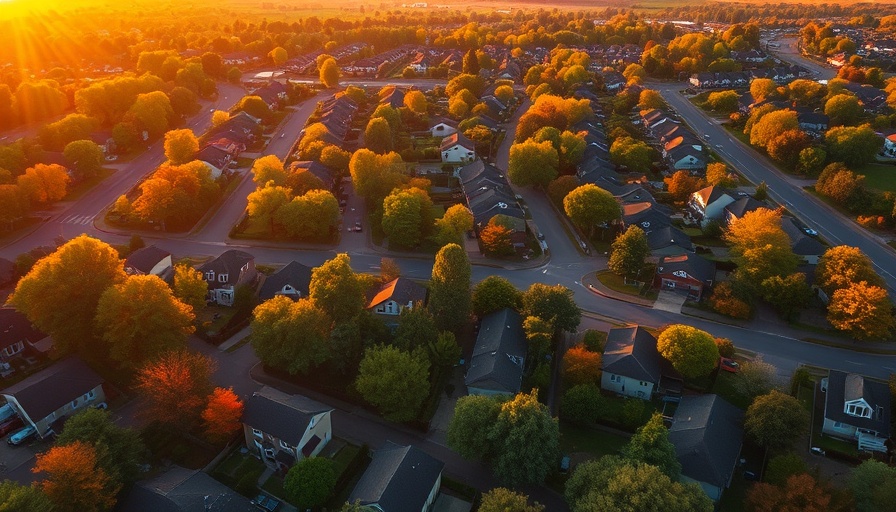
Understanding the Rising Heat Waves in the Tri-State Area
This week’s extreme heat in the Tri-State area reminds residents that scorching temperatures are no longer just a phenomenon of traditionally hot regions. Climatic changes are propelling heat waves to become more frequent, intense, and lasting longer in places like New York City and its surroundings. As these conditions become the norm, they're not just a fleeting discomfort; they can significantly impact our homes, infrastructure, and health.
The Long-Term Impact of Heat Waves on Homes
In the Northeast, summer heat waves can bring a variety of challenges to homeowners, as noted by the U.S. Environmental Protection Agency (EPA). Notably, the combination of high heat and humidity can lead to serious long-term issues, even if damage isn’t immediately visible. Homeowners should be vigilant for signs such as:
- Mold and mildew forming in attics, basements, or around windows.
- Swelling or warping of wood floors, doors, and trims.
- Condensation inside walls or insulation.
- Overworked HVAC systems, which can lead to premature wear and higher energy costs.
While residents in arid parts of the U.S. may grapple with cracked foundations and roofs due to dry soil, our unique Northeast climate demands attention to moisture-related damages.
Simple Steps to Keep Your House Cool
With heat waves on the rise, implementing easy changes at home can drastically improve your indoor comfort without excessively relying on air conditioning. Here are some tips:
- Use a Dehumidifier: While it won’t cool your home, a dehumidifier removes moisture from the air, allowing for a cooler and more comfortable environment. This helps in preventing mold, mildew, and wood from warping.
- Change Your Light Bulbs: Switch to LED bulbs, which emit significantly less heat compared to incandescent bulbs. This contributes to a reduced indoor temperature and can save on energy bills.
- Keep Curtains and Blinds Closed: During peak sun hours, closing blinds can block out heat and keep rooms cooler.
- Seal Your Home: Make sure doors and windows are well-sealed to prevent cool air from escaping and hot air from entering.
- Utilize Ceiling Fans: Ceiling fans can circulate air effectively and make a room feel cooler, allowing for less reliance on A/C.
Responding to Heat-Related Emergencies
As climate crises intensify, so do the risks of heat-related emergencies. Be prepared to act by keeping a close watch on local advisories and understanding your options:
- Have a first-aid kit ready, including items for heatstroke and dehydration.
- Create a contact list of local emergency services and referral centers.
- Identify community centers or businesses offering cooling stations during extreme heat.
Moreover, knowing how to care for your neighbors, especially the elderly or others vulnerable to extreme heat, is crucial. Regular check-ins can make a significant difference.
Local Resources for the Tri-State Community
The Tri-State area offers various resources for residents facing the heat wave. Local government agencies often provide access to:
- Cooling centers available during emergencies.
- Health services offering advice and care.
- Information on energy assistance programs for those struggling with cooling costs.
Stay informed through municipality websites or local news channels to get updated information on available resources.
Why Knowing This Matters
Staying informed and proactive in managing heat can save you money on home repairs and healthcare while keeping you and your family safe. Understanding the unique challenges of your region gives you the power to mitigate risks effectively. Share these insights with your community and help create a collective strategy for navigating these inevitable heat waves together.
With the real estate market continuously evolving, considering energy-efficient homes could also assist in adapting to these new climate realities.
As we face the reality of climate change and its impacts, immediate action to protect our homes and communities is essential. Remember, staying cool during extreme heat is not just about comfort; it's an investment in your health, home, and future.
 Add Row
Add Row  Add
Add 



Write A Comment